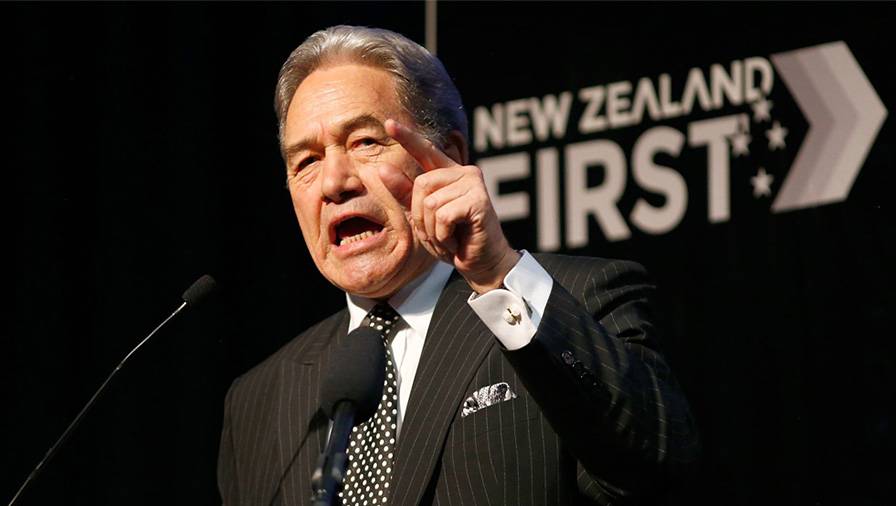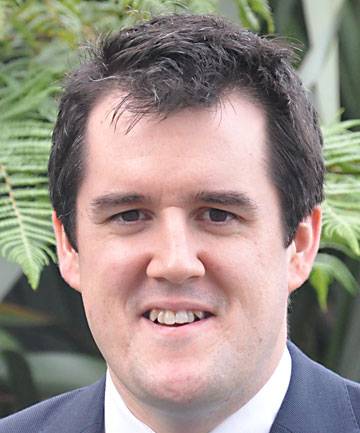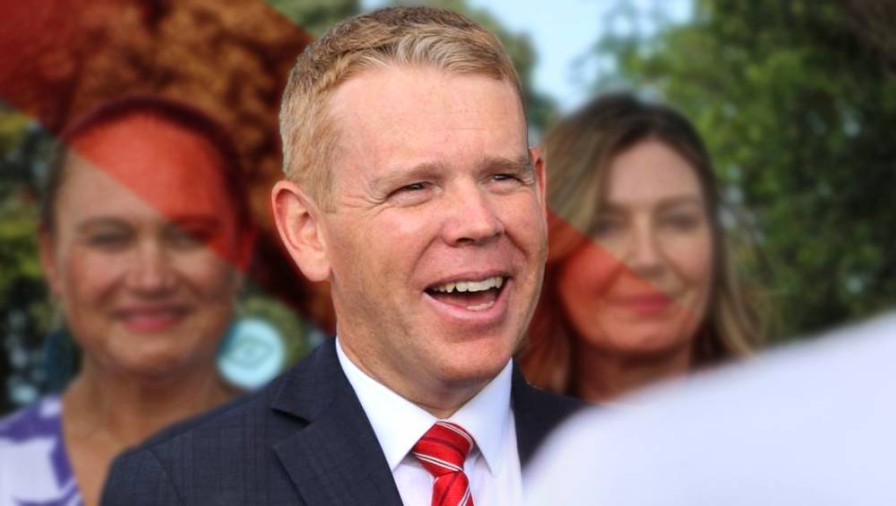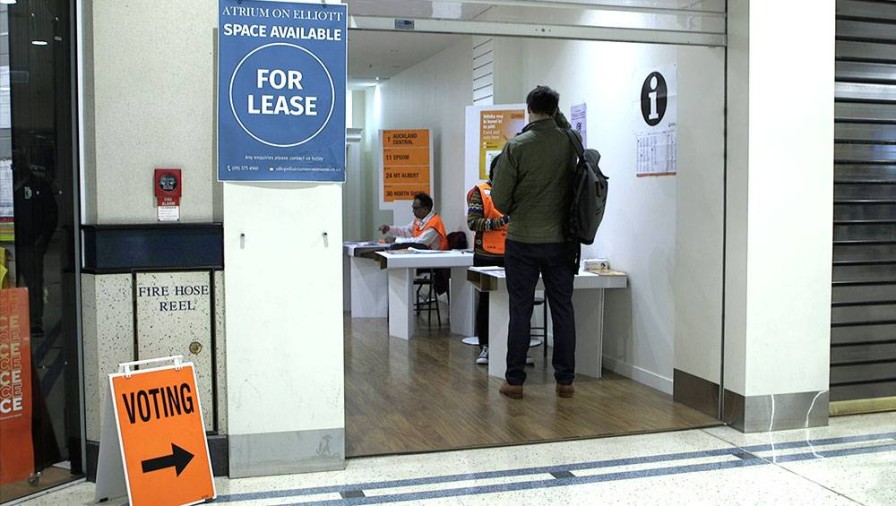Polls, a surge, the kingmaker, and what chance stable government?
ANALYSIS: The polls suggest a National-Act-New Zealand First coalition is increasingly likely.
WATCH: NBR political editor Brent Edwards speaks with Grant Walker.
ANALYSIS: The polls suggest a National-Act-New Zealand First coalition is increasingly likely.
WATCH: NBR political editor Brent Edwards speaks with Grant Walker.
What surely must be the final opinion polls before election day have given a hint of a lift in support for centre-left parties.
NBR presenter Grant Walker calls it a “left surge” but that might be overstating things. There is no evidence – not yet anyway – that the ‘surge’ is anywhere good enough for Labour and its allies to form a government after Saturday. But there is enough movement in the polls – and importantly, it is more than a single poll – to suggest Saturday night might be more nerve-wracking for the parties than many might have thought just a week or so ago.
Who has gained most? No guesses there, as Winston Peters’ New Zealand First Party continues its rise from the ashes and looks almost assured of being in a position to play a part – in fact, a pivotal part – in the next government.
From recording just 2.6% in the 2020 election, New Zealand First is now comfortably recording support over 5% in a range of polls. It is National and Act’s worst nightmare, that they now are most likely to have to deal with Peters if they are to form a government.
Many commentators argue National leader Christopher Luxon’s announcement on September 25 – that he was prepared to pick up the phone to Peters if he had to – was a strategic mistake and the polls started to shift in New Zealand First’s favour after that announcement.
Maybe, but New Zealand First had been looming as a potential kingmaker long before that, with Beehive Banter talking about the prospect as early as June.
National’s campaign chair Chris Bishop rejects suggestions his party’s approach has helped fuel New Zealand First’s support.

New Zealand First leader Winston Peters.
“People have over-read that decision a little bit because actually, what we were doing was just making it clear and being upfront and transparent with New Zealanders about what our preferred governing arrangements were post-election,” Bishop told RNZ’s Morning Report programme.
He said people still would have talked about it even if Luxon had ruled out Peters.
“You’re kind of damned if you do or damned if you don’t,” Bishop said.
In the latest polls, support for Labour has gone up, with it recording 27.5% in the Newshub Reid Research poll and 28% in the 1News Verian poll. But that is still well short of challenging National, which was on 34.5% and 37% respectively. Together with Act, though, that combination does not have enough support in these polls to form a government and would have to turn to New Zealand First for support.
Act’s support has dropped from its peak earlier in the campaign, but it is still polling higher than its 2020 election result. The Greens continue to poll strongly heading into the last day of the campaign and, if they sustain that support, will record their highest vote ever.
Given the numbers, Walker wonders what chance Labour leader Chris Hipkins will pick up the phone to Peters if there is the prospect of a centre-left government being formed with New Zealand First’s support, as it had in 2017.
Never say never, but both Hipkins and Peters have ruled the other out of contention repeatedly during the campaign.

National Party campaign chair Chris Bishop.
On Thursday, Hipkins reiterated that point in a speech at Ngā Whare Wātea Marae, where he again criticised National, Act, and New Zealand First for race baiting that targeted Māori.
“Instead of stoking fear and appealing to the worst of us, how about we all commit to bringing out the best of us?” he said.
In ruling out Peters again, he worded it this way: “I’m not prepared to sit around a Cabinet with political parties whose candidates make openly racist comments about Māori in public forums.
“I’ve ruled out working with Winston Peters, but Christopher Luxon won’t,” Hipkins said.
It would be an extraordinary turnaround for Hipkins to make that call to Peters, but could they possibly construct a support arrangement in which New Zealand First ministers serve outside Cabinet?
Unlikely, but possible.
Meanwhile, the shift in polling support, while not a tectonic change, does suggest Labour’s attacks on National’s policies and likely alliances is having an effect and National appears to have been rattled by the approach.
In turn, its Bishop has increasingly lashed out at Labour, prompting Walker to suggest both major parties sound desperate. Maybe, but there is a lot at stake for the two parties vying to lead the next government.

Labour leader Chris Hipkins has again criticised centre-right parties for race baiting.
In the end, much might depend on voter turnout. Usually, lower voter turnouts favour the centre-right and that seems to be a point that Act has taken on board.
On Wednesday, its leader David Seymour emailed potential supporters saying only 843,000 people had voted early by the end of Tuesday, compared with 1,415,000 at the same time in 2020.
“Lower voter turnout means your vote literally counts for more. But a party vote for Act increases your vote’s power even further,” Seymour said in late bid for more money to pay for text messages to potential voters.
While early voting is behind the same rate at the last election, in 2020, advanced voting started two days earlier and it was in the midst of the Covid-19 pandemic when people might have been keener to avoid the crowds likely on election day. As well, it might signal more voters remain unsure of where to cast their votes this time, so are waiting until later before voting.
If all the possible calculations about the election outcome are not complicated enough, a by-election in Port Waikato, following the death of Act’s candidate Neil Christensen, adds another level of uncertainty.
While that electorate’s party votes will be counted on election night, it must now go to a by-election on November 25. Under electoral law, the party votes on election day will stand and whoever wins the by-election – inevitably National, given it holds the seat – will get an extra MP on top of their party vote allocation.
If the vote is not clearcut on election night, it is possible coalition negotiations might not start in earnest until after special votes are counted – which generally favour Labour and the Greens – or even until after the Port Waikato by-election.

The turnout in early voting has been lower than in 2020.
And then there is the possibility – however remote – of another election if the parties are unable to negotiate a stable agreement.
Bishop, who first raised the prospect, said he did so because there were any number of “messy” scenarios after the election that might result in uncertainty.
National has used that to encourage voters to vote National so it can form a stable government with Act.
Walker does not think it is simply scaremongering, asking whether anyone can believe Peters when he assures people his party could be part of a stable government.
Well, yes. The two Labour-led governments New Zealand First was part of from 2005 to 2008 and then again from 2017 to 2020 were stable and went the full distance, even if the first National-NZ First government fell apart in 1998.
Walker remains sceptical, as he does about the post-election negotiating process, and says voters will be none the wiser after the election than they were before. He suggests it could take until Christmas to sort out the next government.
My prediction? Chris will be Prime Minister by Christmas.

Which Chris?
Sign up to get the latest stories and insights delivered to your inbox – free, every day.